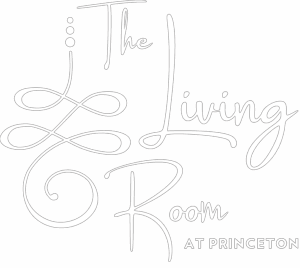For many of us, recovery is our most profound inner journey. Protecting sobriety means tending to the seeds of well-being we’ve nurtured. Addiction isn’t merely willpower lost—it’s a tangled web of thoughts and feelings that build over time. At The Living Room, our relapse-prevention program guides you to root out those early patterns before they bloom into cravings.
This article from The Living Room explores how relapse takes root long before the first drink or drug and offers mindful, compassionate strategies to safeguard your recovery.
The Unseen Beginning of Relapse
Relapse rarely begins with the clink of a glass or the first dose of a drug. Instead, it begins in quiet moments—an idle thought that “one won’t hurt,” skipping a meeting or two, or a postponed check-in with a sponsor. These seemingly harmless choices accumulate, like drops of water carving a channel in stone, until we find ourselves slipping back without recognizing when or how we strayed.
Awareness is Protection
Awareness is our first line of defense. Tuning into shifts in mood—whether irritability, restlessness, or unexplained sadness—can reveal the early stages of a slide. Journaling thoughts, setting aside a few minutes each morning to gauge your emotional temperature, or simply noticing when you start justifying “one little cheat” are powerful practices. By naming these feelings and patterns as they arise, you interrupt their trajectory and reclaim the space to choose differently.
Recovery Doesn’t Occur in Isolation
Vigilance goes hand in hand with connection. Recovery is never a solo mission. Staying close to others who understand your journey means you have allies ready to point out the warning signs you might miss. Regular meetings, honest conversations with a trusted friend, or calling your sponsor the moment you feel off-balance create a safety net. Their questions—“When was the last time you checked in?” or “What’s been on your mind lately?”—anchor you back to the path before you wander too far.
In these gentle but focused actions—observing early changes, naming uncomfortable thoughts, and leaning on your recovery circle—you stop relapse before it gains momentum. It’s in these small, everyday choices that lasting sobriety takes root.
Signs You’re Drifting from the Path of Recovery
When we lose sight of our daily mindful practices, relapse finds a foothold.
Notice if you begin to:
- Start skipping meetings or pulling away from supportive friends.
- Stop engaging with helpful materials like books, podcasts, or journaling.
- Avoid honest conversations with people who understand your journey.
- See resentment or self-centered thoughts begin to build up.
- Take sobriety for granted
These moments are your cue to pause, take a breath, and reconnect with the people and practices that keep you moving forward.
How Mindful Maintenance Helps Prevent Relapse
Recovery is not a finish line but a living practice of balance and presence. Just as a garden needs regular watering, our inner landscape requires steady care. Remembering our progress keeps the roots of addiction from seeking nutrients in stress, loneliness, or pride.
Gentle Strategies to Stay Grounded
Whether you follow a 12-step fellowship or another path, wholehearted commitment makes the difference. Here’s how to tend your recovery garden:
- Stay Present in Community
Rejoin your circle of caring friends. Their steady presence mirrors your own strength when you feel adrift. - Nourish Your Mind
Read or listen to uplifting material each day. Sharing insights with others keeps ideas fresh and alive. - Practice Honest Self-Inquiry
Rather than just talking about old hurts, work through them. Let your actions match your intentions. - Build Loving Accountability
Choose companions who speak truth with kindness. A trusted sponsor or friend will notice small changes and gently guide you back. - Embrace Impermanence
Recall that both challenge and calm will pass. This reminder anchors you in the present, free from fear of future cravings.
The Living Room’s Supportive Offerings
At The Living Room, we weave these mindful principles into every part of our relapse prevention program. From guided meditation to compassionate peer check-ins, you’ll find a sanctuary where awareness, honesty, and connection flourish.
By noticing relapse before it shows up in behavior, you honor the care you’ve invested in yourself—and keep your recovery blooming day by day.
Let’s talk about what The Living Room can do for you or the one you love, today.

